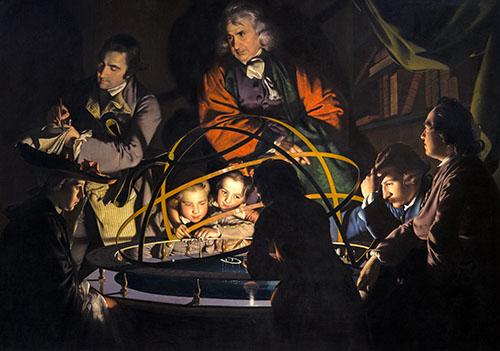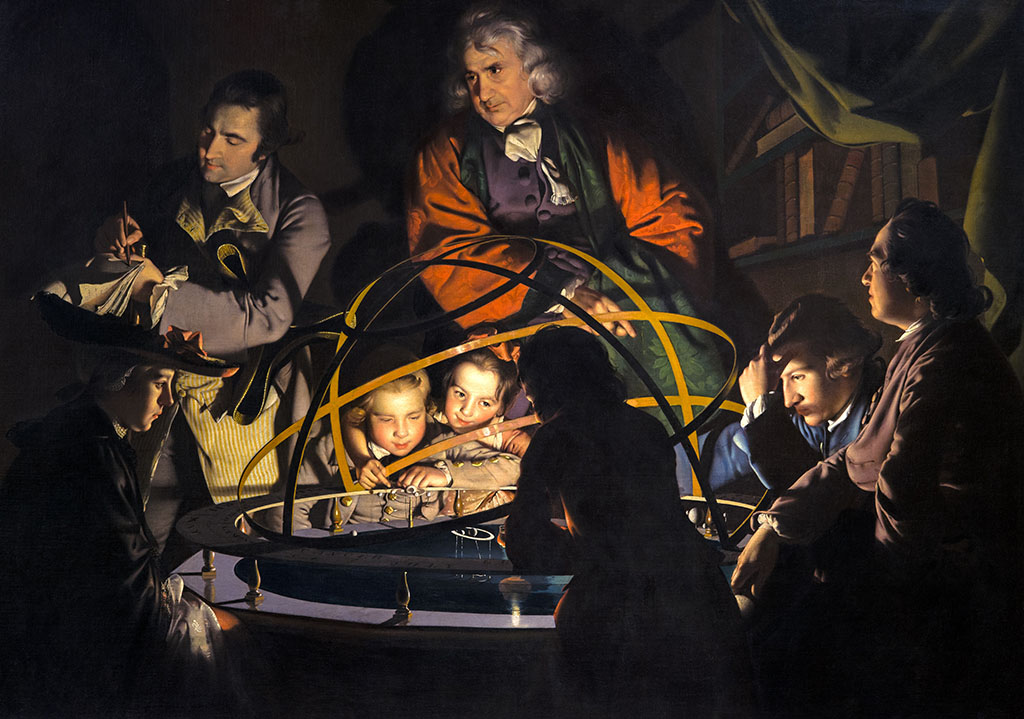Empiricism
For myself, I found that I was fitted for nothing so well as for the study of Truth; as having a mind nimble and versatile enough to catch the resemblances of things and at the same time steady enough to fix and distinguish their subtler differences…
~ Francis Bacon


Joseph Wright of Derby, Untitled, known as A Philosopher Giving that Lecture on the Orrery, in which a Lamp is put in place of the Sun (circa 1766).
Derby Museum and Art Gallery
Empiricism is a theory proposing that all knowledge is acquired via sensory experience. In other words, there is no such thing as innate knowledge or intuition; a true understanding of anything, from organisms to processes, demands meticulous observation. Arguably, this reasoning has ancient origins, but Empiricism solidified into a doctrine during the 17th and 18th centuries through the work of notable European philosophers such as, Sir Francis Bacon and John Locke.
The empirical approach serves as the basis for what is today referred to as the scientific method. This method involves generating a hypothesis as a proposed explanation for some (natural) phenomenon, and then testing its predictive value through experimentation and observation. As a result, the scientific method is more precisely referred to as the empirical method.

